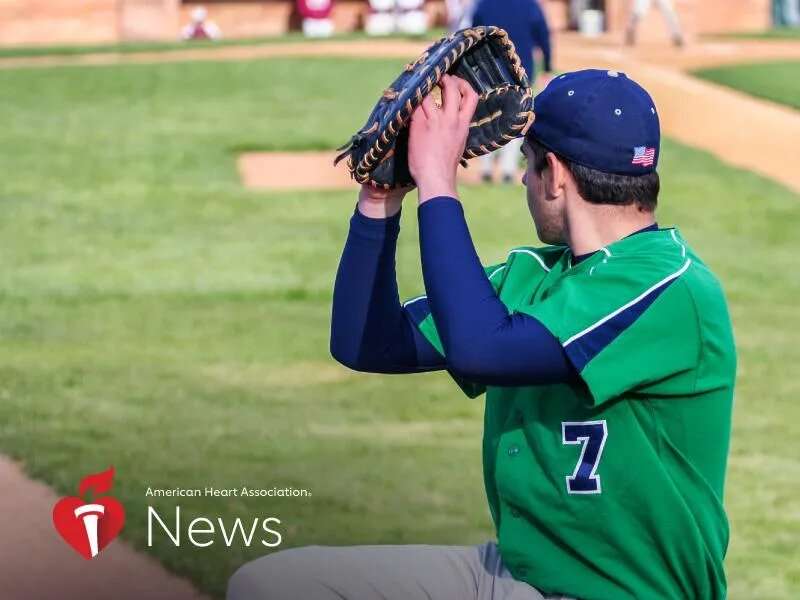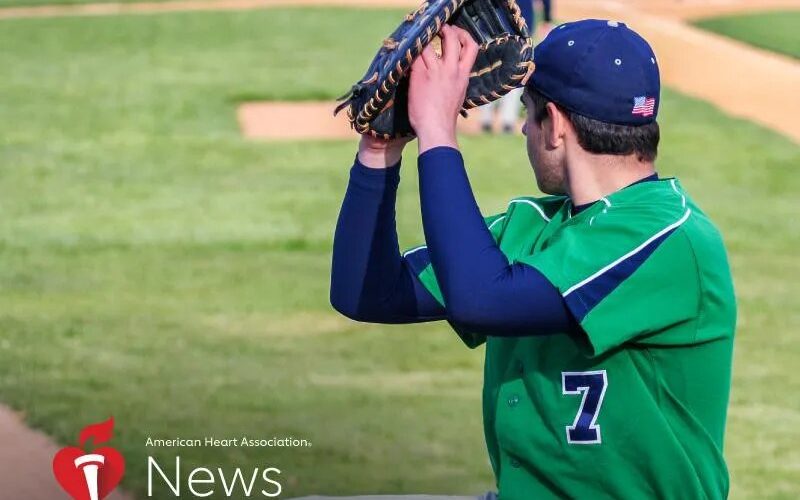College athletes rarely develop heart problems one year after having COVID-19

College athletes who contract COVID-19 and return to playing sports have a low risk of developing life-threatening heart problems, according to new research that suggests stringent cardiac testing isn’t necessary.
The research, published Thursday in the American Heart Association journal Circulation, followed up on a related 2021 study that searched for heart complications among athletes who had COVID-19. This latest study covered athletes from 27 sports in 45 colleges and universities around the United States.
While the previous study found only about 1 in 170 student-athletes with COVID-19 developed cardiac problems, researchers wanted to make sure they weren’t missing any potentially deadly heart problems due to less-than-optimal testing methods.
So, they followed 3,675 athletes for a year after they returned to playing sports, including 21 who had already been diagnosed with definite or probable heart inflammation or heart muscle damage.
The study found that after one year, only one athlete had an adverse cardiovascular outcome—a type of irregular heartbeat called atrial fibrillation—that was possibly related to COVID-19. Researchers found no life-threatening arrhythmias, heart failure or cardiac arrests related to the coronavirus.
“That’s hugely reassuring in this pandemic era of bad news,” said Dr. Aaron Baggish, the study’s lead author.
“The (fear) that we’re missing a silent disease and putting someone at risk has been pretty well put to rest by this paper,” said Baggish, director of the Cardiovascular Performance Program at the Massachusetts General Hospital Heart Center in Boston.
Based on the new findings, the paper’s authors said cardiac MRI tests should not be given to all athletes with COVID-19, just to those with inflamed heart muscles or other warning signs such as chest pain or difficulty breathing.
“Uncomplicated COVID-19 infection appears to confer an extremely low risk of anything bad happening from a heart perspective down the line. The vast majority of athletes who had COVID-19 and have recovered fully don’t need testing,” Baggish said.
He said the study was limited by its observational nature, adding it’s important for clinicians to keep a close watch on athletes to determine the long-term cardiovascular impact of COVID-19. And he said he plans to do future studies of college athletes with existing cardiovascular problems.
“We have to pivot back and start asking questions about the safety of sports and kids with heart disease, that same question we cared about before the pandemic and we’re going to care about after the pandemic,” Baggish said.
Dr. Ravi Dave, who was not involved in the research, said the study was limited by only tracking the athletes’ health for one year. He called for longer studies, including research on how COVID-19 variants impact athletes’ heart health. Dave said he’d also like to see future studies that focus on middle-age and older individuals who play a sport.
But overall, he called the new research reassuring.
“This is a nicely done study with important data confirming the fact that in young athletes, cardiac involvement is a rare condition with a very small number of adverse events,” said Dave, director of interventional cardiology at UCLA Health in California.
Source: Read Full Article
